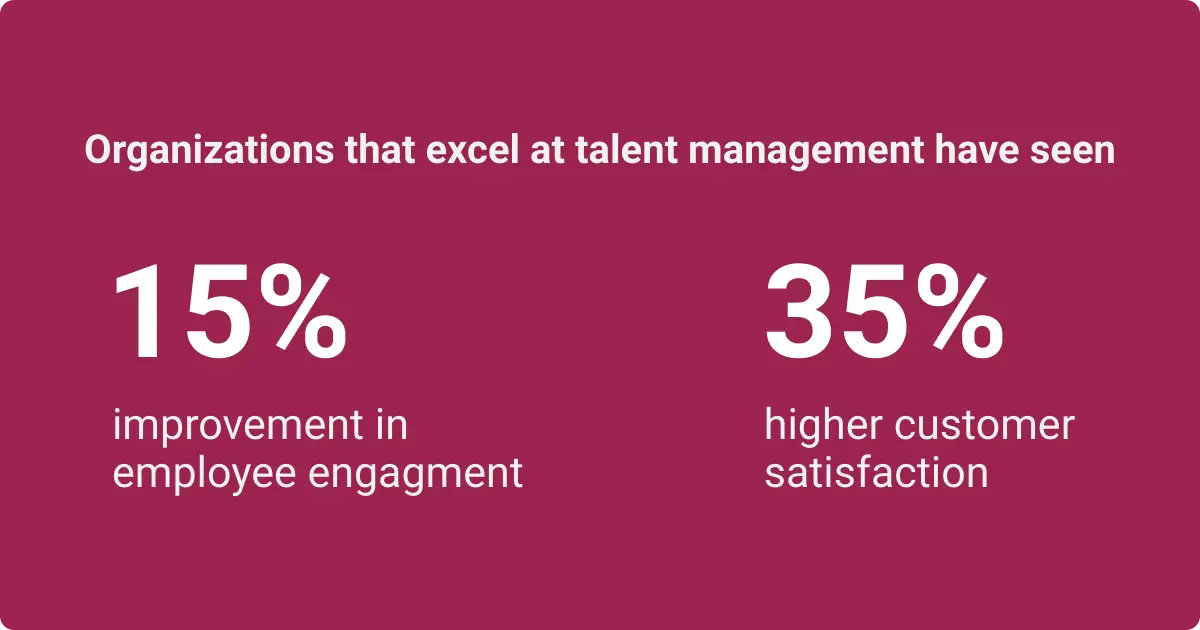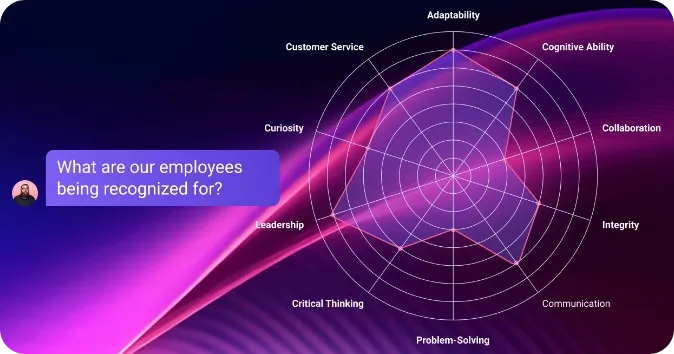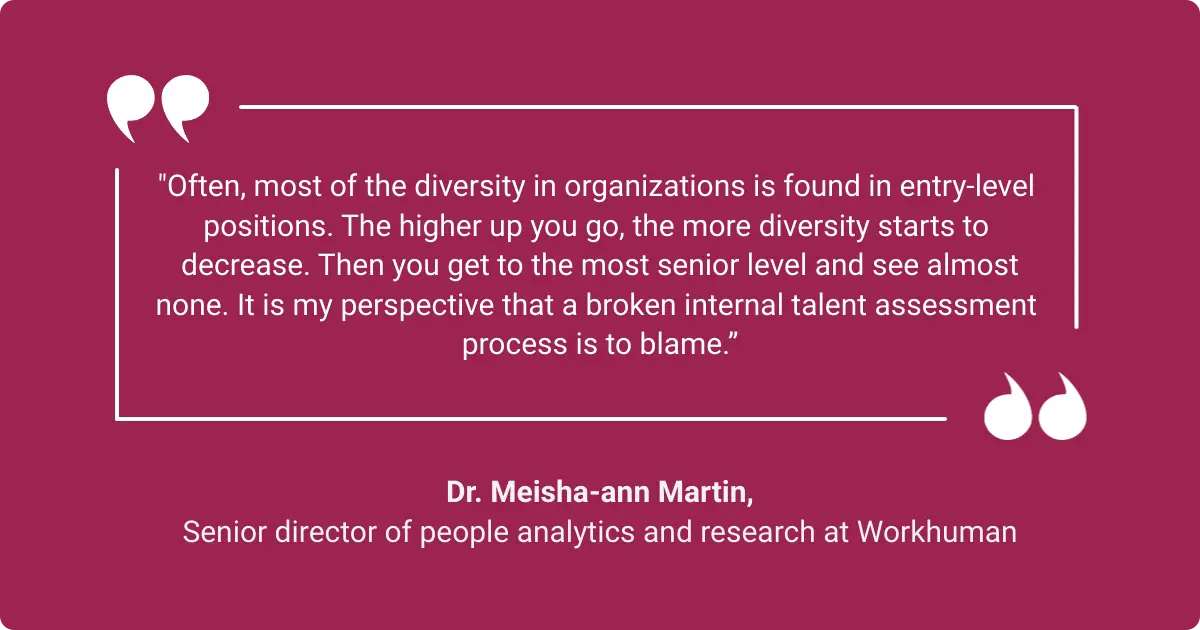Expanding the Role of Machine Learning in HR

Machine learning in HR is transforming the field at lightning speed. This technology offers a variety of solutions to enhance efficiency, accuracy, and strategic decision-making for HR professionals.
From automating administrative tasks like resume screening and employee onboarding to providing advanced analytics for a robust talent management framework and workforce planning, machine learning has the power to completely alter how HR departments operate.
Read on to learn more about how machine learning and artificial intelligence (AI) are driving digital transformation in the HR industry.
What exactly is machine learning?
Machine learning is a type of artificial intelligence that enables computers to “learn” from and make decisions based on data. Unlike traditional programming, where specific instructions are coded for every task, machine learning algorithms utilize data, statistical models, and predictive analytics for hr to identify patterns and make decisions.
To operate this technology, an individual will “feed” large amounts of data into a model, which then “learns” from the data by adjusting its parameters, improving accuracy over time.
By continuously “learning” from new data, machine learning systems are constantly adapting and iterating their processes. They can provide insights that might be difficult for humans to discern because they’re capable of taking and analyzing so much data at once.
This valuable data can be used to make HR processes smoother at every level, from the recruitment process to the hiring process to onboarding and even offboarding.
Want to learn how to implement AI and machine learning tools in your organization without fear? Check out our Workhuman Spotlight, which features a panel of subject matter experts.
How can machine learning help HR professionals?
The expansion of machine learning in HR can pave the way for more sophisticated AI-powered business intelligence solutions across the enterprise. Here are a few examples of how machine learning has the power to support your HR department:
1. Providing administrative support with recruitment and hiring
Machine-learning tools can help HR leaders create more accurate job descriptions, simplifying the talent assessment process from the very beginning. There are tools available to help HR professionals identify the most qualified candidates from a sea of applicants by pulling resumes that feature relevant skills that align with certain keywords or parameters.
There are also specific machine learning tools available that can help track candidate progress through the application cycle, even scheduling interviews and automating messages to help update candidates on their statuses.
Automating these administrative tasks can leave HR professionals with more time to hone their application processes and interview candidates to determine the best fit for each open role.
2. Monitoring compliance and supporting reporting functions
Compliance is a major concern for most HR departments. Luckily, machine learning technology can be a powerful tool to support HR analytics and reporting functions and help monitor and maintain all compliance standards, even as they constantly evolve.
Not only can this reduce the stress placed on HR teams, but it can also eliminate the need for manual audits and routine checks, which can be time-consuming and susceptible to costly human errors.
The real-time monitoring capabilities of these AI reporting tools can flag potential issues before they escalate into larger problems, which helps mitigate and minimize risk.
Organizations that choose to utilize these machine-learning tools can reap the benefits of improved compliance reporting, better planning, and more strategic resource allocation.
3. Performing risk assessment and management
Machine learning and artificial intelligence tools utilize advanced algorithms that can help your team analyze data at lightning speeds. Because these tools are also capable of “learning” and adapting to new information constantly, they can also seamlessly perform assessments even as best practices constantly change.
This type of “always on” capability can do wonders to improve your company’s overall risk management strategy.
4. Supporting better employee engagement
Machine learning can make it much more simple to survey, collect, and aggregate data from your employees so you can truly keep your finger on the pulse. These tools can help you analyze shifts in employee satisfaction so you can identify and address their root causes.
Over time, this can help your team track patterns that lead to employee attrition and make the changes necessary to increase retention rates, helping you keep your best performers on your staff.
Ultimately, this will help you save a lot of time and money associated with hiring and onboarding new hires, all while improving the employee experience throughout the employee life cycle.

5. Optimizing workflows and internal processes
By simplifying and automating day-to-day responsibilities, HR machine learning can help your staff work smarter, not harder. Machine learning algorithms are capable of identifying patterns using predictive analytics to identify workflow challenges, helping organizations streamline their HR tasks and processes.
These improvements can help HR management teams make more informed decisions about resource allocation, as well as reduce operational costs, minimize errors, and increase productivity.
Machine learning can also improve internal processes by providing advanced analytics that can make strategic planning and execution much simpler and more streamlined. These AI tools can even identify potential issues through predictive analytics, helping your Human Resource management team address problems before they even arise.
6. Helping HR staff upskill and develop as professionals
Machine learning has the unique capability to create personalized HR training and development opportunities for all members of your HR teams. By analyzing employee performance data, individual career goals, and learning styles, these tools can recommend tailored training programs and resources.
This can help foster growth and advancement while deepening employee engagement, as they’ll be studying subject matter that is deeply aligned with their interests.
Machine learning can also identify valuable skills and emerging trends within the HR industry using predictive analytics, which can help professionals constantly hone their skills to stay ahead of the game.
This helps create a highly proactive approach to human resource development, fostering a company culture of continuous evolution.
"What gets measured gets managed." But how do you get an accurate measure of skills? Don't rely on resumes or one-off evaluations.
With Workhuman iQ® you can easily understand skills across your organization. The tool uses proprietary algorithms and NLP to identify skills in peer recognition messages and classify them in an easy-to-read distribution chart for an team or company.

Harness the combined powers of AI and recognition—Human Intelligence™—to crowdsource authentic, sustainable skills insights.
Are there any cons to utilizing machine learning in HR?
HR industry professionals often voice concerns over the following issues with machine learning:
Potential issues with bias
Because machine learning and AI tools are created and programmed by humans, the implicit biases of the developers are often programmed into this technology. Historical hiring data, which may favor certain populations, is also often used to create these hiring algorithms, which can perpetuate those biases in the future.
Despite the best of intentions from the people who create machine learning tools, these systems need to constantly be evaluated and improved in order to avoid these inequities.

To mitigate this programmatic bias, data scientists work to ensure that the information used to “train” algorithms is from a variety of sources, which can help create more inclusive, representative samples.
The HR teams who use machine learning tools for hiring also need to be aware of these potential flaws and help ensure that their hiring practices are constantly evolving to become more fair and equitable.
Dive deeper into how biases in the workplace can impact your organization and discover strategies to mitigate them.
Privacy concerns
Because machine learning algorithms rely so heavily on collecting private data to evaluate employees and create insights, there are inevitably more security issues and risks for misuse. Since so much personal information and employee data is stored in and utilized by these tools, many experts are concerned about how well it’s protected within these systems.
However, there are many things HR departments can do to use machine learning systems more safely. The first is to get the informed consent of each employee whose data is stored within the tool.
Next is to implement strong data security practices, which will help ensure that this information remains private. It’s also important to be transparent about why this data is being collected and how it’s being used by the machine learning tools.
Conclusion
Utilizing machine learning in HR is much simpler and easier to implement than it may sound. By onboarding new tools and automating old processes, you can empower your Human Resources team to increase employee retention, upskill your existing staff, and reduce the amount of money you spend on hiring.
Machine learning tools can also simplify data analysis, enabling real-time monitoring and tracking of historical data to help improve your HR practices and HR management.
This, in turn, can help increase your employee engagement and productivity by making your organization a happier, more productive place to work.
About the author
Anna Picagli
As an RYT500 yoga instructor and a Reiki Master Teacher, Anna is an advocate for holistic wellness, especially within the workplace. She’s extremely passionate about the brain-body connection and exploring how mental and physical wellness intersect.
Anna has experienced firsthand how chronic stress, overworking, poor management, and other organizational issues can lead to extreme burnout. Knowing the impact that a toxic work environment can have on a person’s body, psyche, and general sense of well-being, she now works to direct others away from facing the same fate.
As Workhuman’s Senior Content Specialist, Anna is a regular contributor to Workhuman iQ reports and aims to create resources that company leaders can reference to help improve their culture and empower their employees, creating healthier workplaces for everyone.
In her free time, she’s an avid solo traveler, a voracious reader, and a seasoned home chef. You can learn more about Anna’s work on LinkedIn or through the Yoga Alliance.